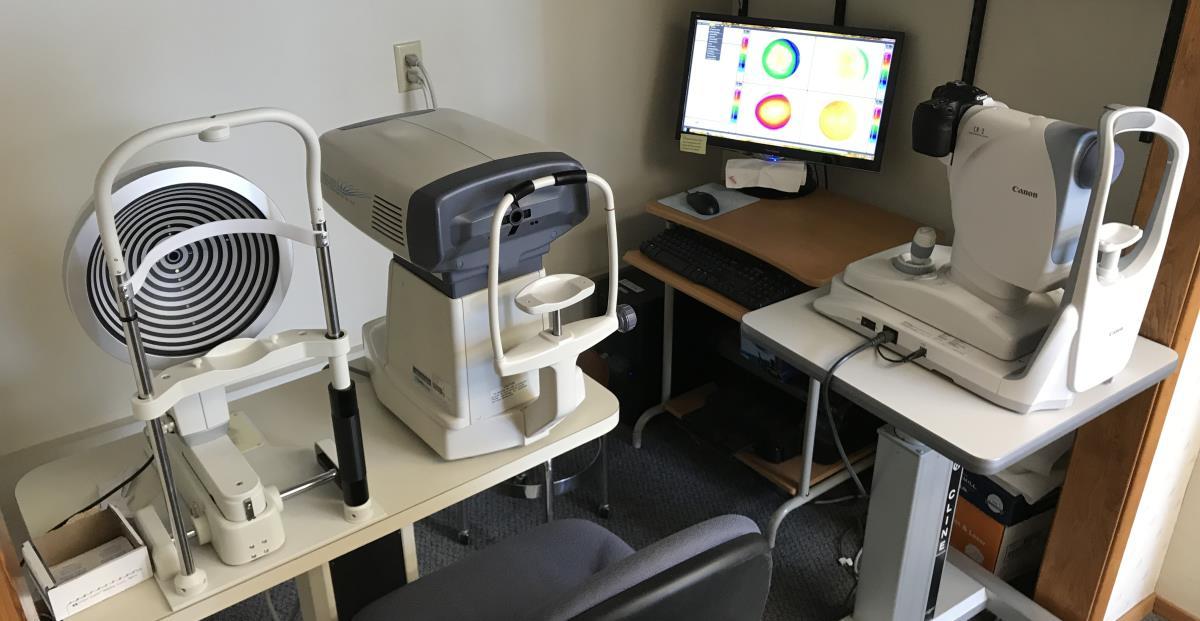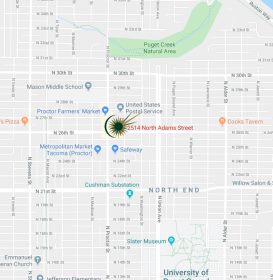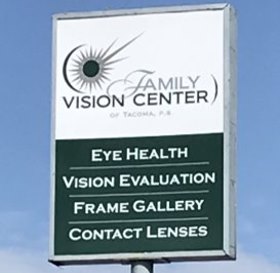Routine Eye Exams Are Important

We strongly encourage everyone to get a routine comprehensive eye exam once per year. Eyes are unfortunately a place where permanent damage may be happening without symptoms occurring until a disease has progressed to a late stage and little or nothing can be done. Many eye diseases, such as glaucoma, normally give no symptoms or sensations until much permanent damage has occurred. Early detection makes the chances for successful treatment much higher. With some simple tests, done at all routine exams at our clinic, we can detect the early onset of serious eye conditions such as glaucoma, macular degeneration, or retinal tears and detachments. Eyes can also be an indicator for your overall health, particularly in the case of diabetes or high blood pressure. No matter who you are, annual eye exams are essential to ensure you are seeing clearly, and will for life. Be sure to see our library page for articles and information about common eye diseases and vision disorders.
What Procedures Are Done at a Comprehensive Eye Examination?
The three areas evaluated in a routine exam are: Visual Acuity (the clarity of vision), binocularity (how the eyes work together), and eye health. The first critical step, however, is conversation about what symptoms you may experiencing, and what tasks your eyes do in your everyday life; there is no substitute for the doctor listening carefully to the patient. We measure your vision using eye charts, do tests to evaluate your lens prescription, eye pressure, visual field, eye muscle ability, eye teaming skills, and focusing ability. Further tests may also be done, such as pupil dilation, which helps us see the inner parts of the eye better. Special testing, such as photographing the retina, measuring corneal thickness, or automated visual field testing may also be done if we see things that warrant further evaluation.
What's the Difference Between a Standard Routine Examination and a Contact Lens Exam?
Contact lens fittings are simply an additional "layer" on a standard routine exam. Each brand of contact lenses has a unique set of fitting characteristics, and must fit on your cornea with adequate tear circulation underneath it or serious complications can happen (You should never wear another person’s contacts, even if they have similar prescription numbers to yours!). The materials and advanced designs available today have enabled millions of people to go back to contact lens wear who were driven away because of dryness, discomfort, or inconvenience. Today’s contacts are a joy for physicians to fit and for patients to wear! See our links page for some of the contact lens manufacturers whose products we fit.
Glowing Reviews
I was very pleased and felt like a person not a numbered patient. Thank you!
Brenda, Tacoma
Thank you for a comfortable eye exam experience! Friendly staff, professional office environment - I am so glad I found you guys.
Linda, Roy, WA
I was very pleased with the way I was treated, and how everything was explained to me. I’m looking forward to my next visit! (And I’m enjoying my headache-free days at school!) Thanks again!
Jessica, Tacoma
I was seen right away which I appreciate! Thorough exam performed efficiently also! Front office staff acknowledged me right away which makes a difference when choosing places I'll patronize.
Simone
We had a very pleasant experience when we saw Dr. Gorham today. Dr. Gorham explained what he was doing throughout the exam and the staff were extremely helpful to my son as he asked questions about glasses. His visit
Jackie





